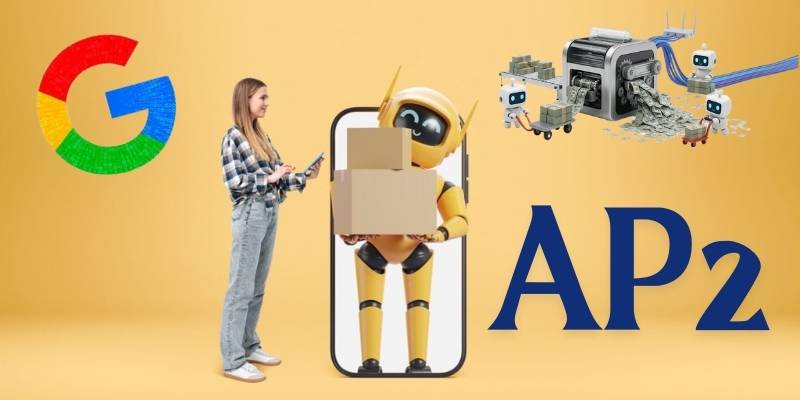
Your Next Shopping Buddy Might Be an AI — Google Unveils Agent Payments Protocol
Google has unveiled its Agent Payments Protocol (AP2), a system designed to let AI agents autonomously handle transactions, from credit cards to stablecoins and even real-time bank transfers.
A recent report on the launch explains how purchases are secured with cryptographically signed mandates that trace intent step by step, effectively turning AI into a trusted middleman for shopping.
Instead of relying on the traditional checkout process, AP2 introduces digital contracts known as Intent Mandates and Cart Mandates.
These mandates ensure that every decision the AI makes is tied back to the user’s original approval.
In practice, that could mean giving your assistant instructions like “find a laptop under $900 and deliver it by Friday,” and the AI would negotiate, approve, and complete the payment in a traceable way, as described in Google’s official announcement.
What makes this launch even more striking is that Google isn’t acting alone. More than sixty major companies — including Mastercard, Coinbase, PayPal, and Etsy — are already involved in developing the framework.
According to industry coverage of the initiative, these partners aim to create an ecosystem where customer agents and merchant agents can communicate securely, ensuring transactions feel seamless but remain accountable.
Of course, the big questions are still on the table. What happens if an AI agent misreads its instructions, or worse, gets exploited by malicious actors?
Analysts have warned that while AP2 promises efficiency and speed, fraud and compliance challenges will only multiply if accountability isn’t nailed down.
A recent analysis even suggested that adoption will depend heavily on whether businesses and regulators trust these digital mandates to protect both sides of a transaction.
To strengthen its push, Google has also deepened its collaboration with PayPal, expanding AI-powered payment infrastructure across services like Google Cloud, Ads, and Play.
This move has been presented as a way to ensure that AP2 isn’t just a futuristic experiment but part of an already familiar payments backbone, as highlighted in coverage of the partnership.
Meanwhile, financial markets are keeping close watch. Alphabet’s stock performance this year has been boosted by investor enthusiasm for AI projects, and initiatives like AP2 are being viewed as key drivers of the shift toward agentic commerce.
Another report on digital finance trends pointed out how the broader landscape is already gearing up for an era where autonomous agents handle both stablecoins and traditional payments.
Here’s my take: if this really works, it could change the way we think about money online.
Instead of spending time hunting for deals or worrying about checkout clicks, your AI could handle all that in the background.
But trust is a fragile thing — one slip-up with people’s money, and the whole idea could backfire.
The question is, would you be willing to let an algorithm shop for you while you just sit back and wait for the delivery?





















